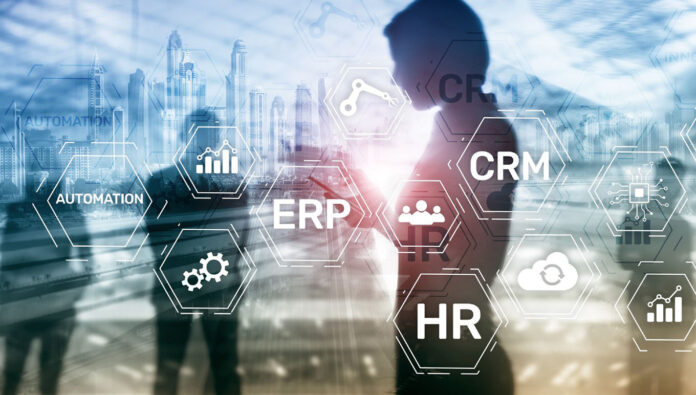
Companies in today’s fast-paced, fiercely competitive business environment are always on the lookout for methods to improve their internal processes and secure a strategic advantage. Enterprise Resource Planning (ERP) software has become an important tool in recent years for helping firms accomplish these objectives. Enterprise resource planning (ERP) software unifies the many moving parts of a business to facilitate streamlined collaboration, increased productivity, and more informed decision making. How can enterprise resource planning (ERP) software help businesses of all sizes and in what ways?
Unified Perspective on Tasks
With ERP software, businesses can see all of their procedures, data, and activities in one place. Finance, HR, inventory, supply chain, customer relationship management (CRM), and other business processes can all be managed from a central hub. If you want to learn more about how ERP software can help you accomplish this, you can do so by visiting technologyevaluation.com.
In this way, employees from various departments are able to collaborate and make decisions using up-to-the-minute data. It ensures that all data is in one place and up to date, which both helps eliminate data silos and boosts data integrity. This comprehensive overview of the company’s data helps organizations learn about their operations, spot patterns, and make educated strategic decisions.
The Computerization of Duties
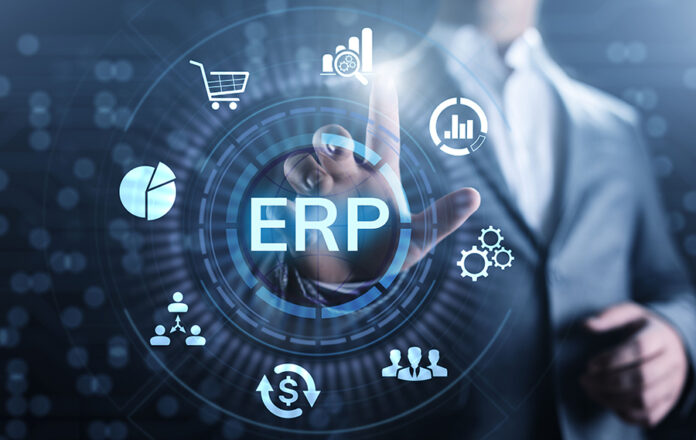
The use of enterprise resource planning (ERP) software has greatly improved the efficiency with which businesses run their operations. The system streamlines tedious processes, freeing up workers’ time for more strategic and value-added work. Its implementation allows enterprises to better allocate resources, boost output, and cut down on human error.
ERP systems streamline data entry, report creation, and inventory management by automating common processes. By connecting diverse departments and operations, ERP software automates the process of data entry into spreadsheets and databases, ensuring real-time data updates and accuracy.
In addition, automation simplifies processes by doing away with mundane activities like invoicing, purchasing, and managing payroll. This reduces the potential for human error and saves time. ERP software allows for the scheduling, monitoring, and automating execution of repetitive operations, allowing workers more time for higher-value activities like analysis, decision-making, and client involvement.
Timely Reporting and Analysis
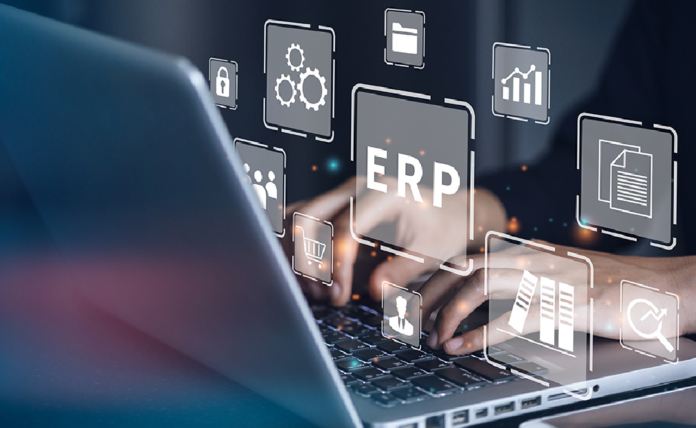
The ability to run analytics and generate reports in real time is an integral part of most modern ERP systems. Accessing and analyzing data in real time allows firms to get insights and make well-informed decisions. Key performance indicators (KPIs), inventory, sales, and manufacturing efficiency may all be monitored in real time with the use of analytics.
On-demand, personalized reports that reflect the current state of a company’s operations can be generated in real time using real-time reporting. Stakeholders like managers and executives benefit from this skill since it allows them to spot trends, identify problems, and act swiftly based on data. Companies may better adapt to market shifts, seize growth opportunities, and boost productivity with the help of real-time analytics and reporting.
Managing the Supply Chain
ERP software allows businesses to more effectively manage their supply chains, which include the delivery of products, services, and data to customers. Organizations may automate and coordinate procurement, inventory management, demand forecasting, order fulfillment, and logistics management with the help of this software.

There are many advantages for businesses who use ERP software to manage their supply chains. Inventory levels, supplier efficiency, and consumer needs can all be better understood thanks to the program. With this information at their disposal, businesses can make well-informed decisions and adapt quickly to shifts in the supply chain.
ERP software improves supply chain coordination by facilitating interaction and sharing of information among suppliers, manufacturers, distributors, and retailers. It streamlines communication between teams and helps integrate processes across locations and organizational boundaries.
ERP software also provides precise demand projections and inventory tracking, both of which contribute to optimal inventory levels. This avoids wasteful stockpiling and stockouts, which saves money and makes customers happier. In addition, it encourages effective procurement procedures, which in turn helps businesses improve their bargaining position with suppliers.
Improved Interactions with Clients
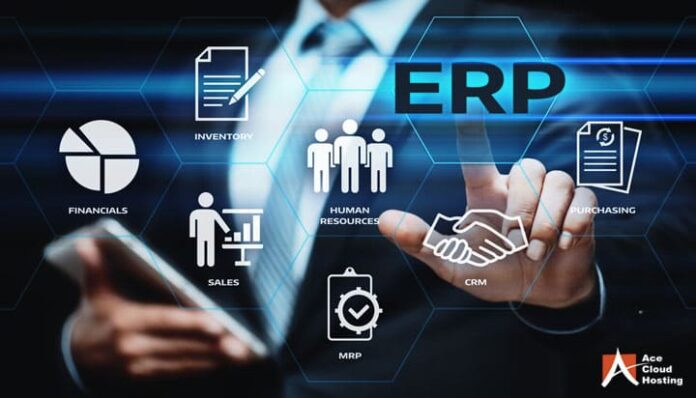
ERP software is essential in improving customer connections for companies of all sizes and in all sectors. ERP systems provide a consolidated platform for management and streamlining processes, ultimately leading to better client experiences thanks to the system’s robust features and integrated functionality.
With the help of this program, orders may be processed and fulfilled quickly, accurately, and efficiently. Customer satisfaction rises as a result of shorter delivery times and more reliable information provision.
Comprehensive customer data, including as purchase history, preferences, and communication records, is stored in ERP systems, allowing for efficient customer relationship management (CRM). By using this data, companies can better connect with their customers through individualized service and targeted advertising.
ERP software improves customer service by giving support staff instantaneous access to customer data and increasing their ability to fix problems quickly. Effective customer interaction is made possible by ERP systems with built-in channels for receiving and relaying consumer feedback, questions, and complaints.
Inventory optimization and shortage avoidance are both facilitated by ERP software’s inventory management features. This allows companies to quickly fulfill orders, which in turn increases consumer happiness and loyalty.
Capacity for Growth and Change
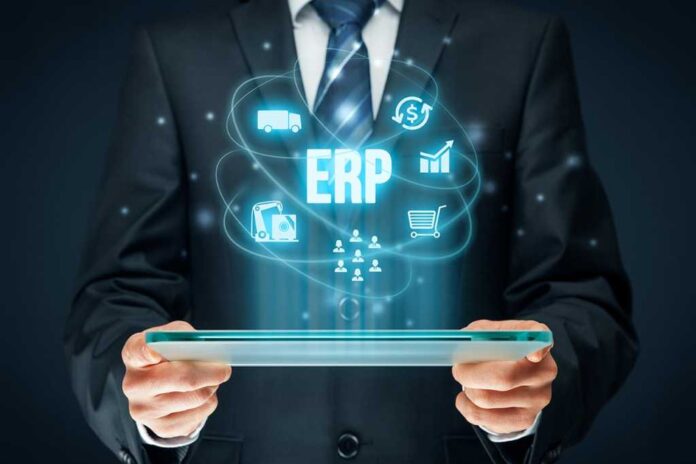
Businesses that plan to expand their operations should carefully assess the scalability of any ERP (Enterprise Resource Planning) software they invest in. The scalability of ERP software is measured by its capacity to handle more data, more users, and more transactions as the organization grows. A scalable enterprise resource planning system may adapt to changing needs without decreasing in speed, efficiency, or dependability.
When referring to enterprise resource planning (ERP) software, scalability refers to the degree to which the system can accommodate a growing number of users, store and process larger data sets, and easily include new modules or features without compromising performance. The ERP system’s processing power, storage space, and network throughput can be increased to match the increasing demands of a firm.
A scalable ERP solution not only helps a company expand, but it also helps keep things running smoothly as they do so. It lets businesses scale up by adding users, offices, or divisions without experiencing major disruptions or slowdowns in service. Companies may confidently pursue growth prospects when they have ERP software that can scale with their needs.
The use of enterprise resource planning (ERP) software has become critical for companies to optimize their operations and fuel growth. Investment in ERP software is a strategic move that can help enterprises survive in today’s competitive landscape and meet the growing complexity of today’s business environment. Today is the day that every company should start looking for ERP software.


![[Break] One Piece 1110 Raw Scans, Spoilers, Release Date](https://orianime.com/wp-content/uploads/2024/03/one-piece-1110-raw-scans-spoilers-release-date-800x450.jpg)


